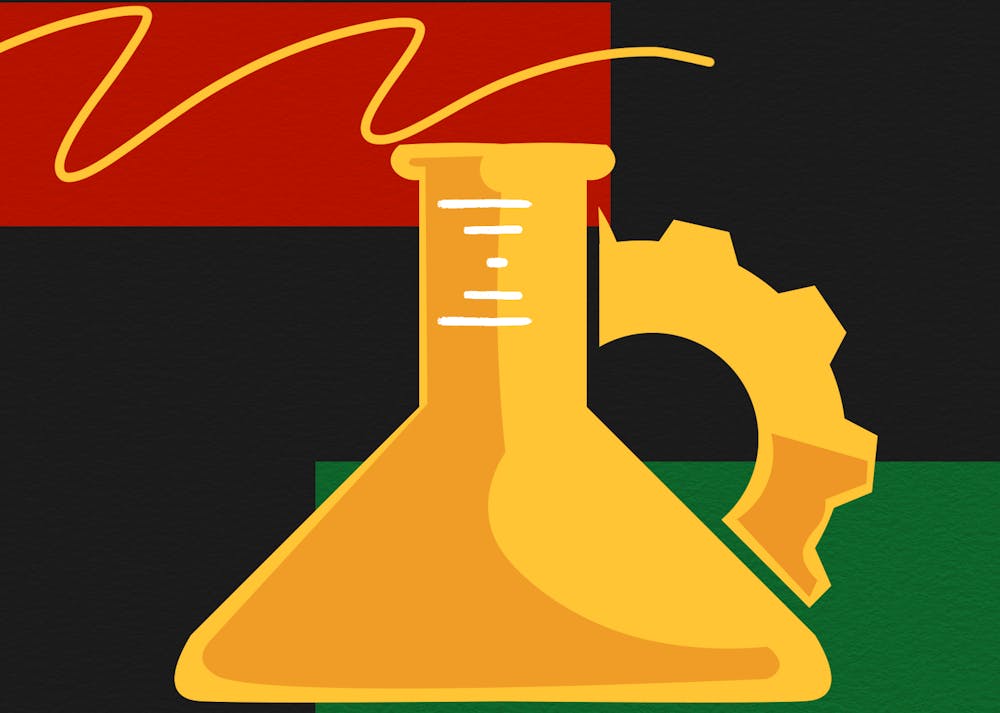Black students looking to enter a STEM field face issues with underrepresentation and retention, but efforts from ASU faculty and student organizations seek to ensure that they are supported in their journeys.
ASU has several programs and clubs devoted to connecting Black students with the programs and resources for academic and professional development in STEM, such as the Multicultural Communities of Excellence, which hosted the Black Women in Engineering Faculty Panel on Feb. 8.
The panel put a spotlight on the journeys of some Black faculty in STEM and equity research, with the hopes that students have the opportunity to learn from them.
The panel was moderated by three leadership members of Black Women in STEM at ASU, a relatively new club at ASU, having just started last August. They are devoted to providing a safe space for Black women, who often face unique challenges in STEM fields at the intersection of racism and sexism.
Meseret Hailu, an assistant professor of higher and postsecondary education at the Mary Lou Fulton Teachers College, was a panelist at the event. She researches the retention of marginalized women in STEM programs and careers. Hailu discussed the way a lack of opportunities and resources can influence how careers are built.
"It's a systemic failure in terms of who has access to the resources that all the members of the panel did," Hailu said. "You really have to decouple your sense of purpose and meaning from your career and find your sense of value and what you'd like to do over the course of your life."
Brooke Coley was another panelist and is an assistant professor at the Ira A. Fulton Schools of Engineering and a racial equity scholar. Coley said one of the defining moments in her career was when she realized "the myth of meritocracy."
"We don't have this opportunity for all to advance equally independent of our social position," Coley said. "For those that are underrepresented, hyper-visible, invisible, if you don't speak out you might not make it. I would like to be a part of a culture where the expectation is to speak out, that's justice."
Kimberly Scott was the third panelist and is a professor of women and gender studies in the School of Social Transformation. Scott is one of the founders of ASU's Center for Gender Equity in Science and Technology. To her, MCoE provides an opportunity for students to connect with their peers in a way not previously available, but students should not stop there when looking for development.
"I wish I had been vulnerable enough to seek mentors, notice the plural," Scott said.
Also on the panel was Vernon Morris, a professor of chemistry and environmental sciences and director of the School of Mathematical and Natural Sciences at ASU. He was in the first cohort of African Americans to earn a doctorate in atmospheric chemistry at the Georgia Institute of Technology and encourages finding allies among peers.
"Having a core of people who are critical with you and have your experience are critical to your success," Morris said.
The final panelist was Marielle Iroko Abalo, a marine biologist and STEM educator. Abalo’s current work and research are on the intersection of marine biology and coastal environments in African diaspora locations.
"When I was in undergrad I was a biology major. But I had a great relationship with the faculty of other majors and departments … I wish I knew it's okay to lean in to the support of other departments," Abalo said.
Outside of the work and advice of faculty and panelists, many student organizations also provide resources and support for Black STEM majors.
On Feb. 19, clubs including the Black African Coalition, Black Women in STEM, and the National Society of Black Engineers will host the Black Professional Conference, an opportunity for students to learn and network with Black professionals. The event will also be providing free headshots.
According to co-vice president of NSBE Tochukwu Anyigbo, the purpose of the club is to "help the Black community find a place where they are comfortable and also help each other grow professionally, socially and academically."
Tochukwu, a junior studying materials science and engineering, said that NSBE works with sponsors like Zillow, Raytheon Technologies and Southland Industries to provide professional growth opportunities. NSBE reached out to these sponsors to be present for the career fair portion of the Black Professional Conference; however, their efforts are not limited to only events.
"We have a newsletter that goes out weekly. We put all of the job links and career info there to anyone that's registered in SunDevilSync," Tochukwu said.
The panelists, MCoE, and student organizations like NSBE work to improve Black representation in STEM fields, both academically and professionally.
Edited by Annie Graziano, Jasmine Kabiri and Greta Forslund.
Reach the reporter at syramir2@asu.edu and follow @nerdyoso on Twitter.
Like The State Press on Facebook and follow @statepress on Twitter.
Sophia is a senior studying biological sciences. This is her fifth semester with The State Press. She has also worked as a science and technology reporter.




